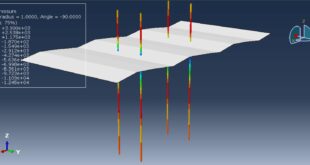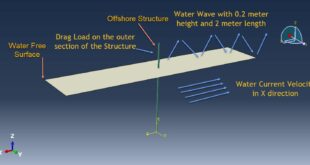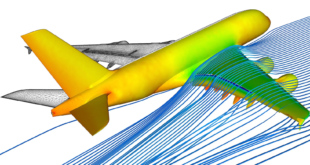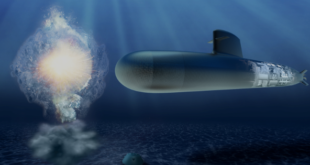Introduction to Dam Simulation and Analysis in Abaqus
Abaqus is a powerful finite element analysis (FEA) software widely used in engineering and scientific research for simulating complex physical behaviors. When it comes to dam simulation and analysis, Abaqus provides a comprehensive suite of tools to model, analyze, and predict the performance of dams under various conditions, such as static loads, dynamic loads, fluid-structure interactions, and thermal effects. Dam failure is a catastrophic event that can lead to significant loss of life, property damage, and environmental devastation. Understanding the causes and mechanisms of dam failure is critical for designing safer dams and mitigating risks. Abaqus, as a finite element analysis (FEA) tool, can be used to simulate and analyze potential failure scenarios, helping engineers predict and prevent such events
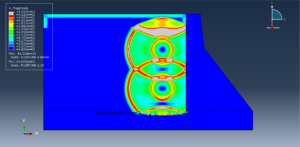
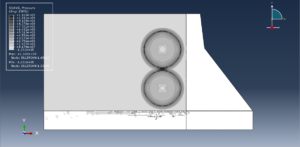
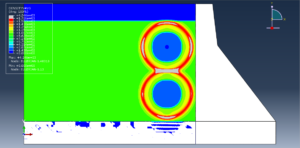
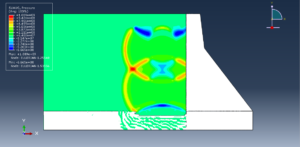
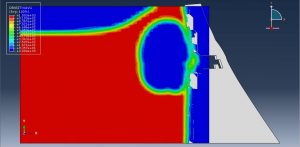
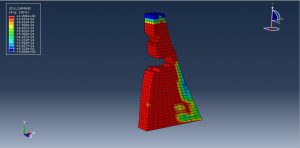
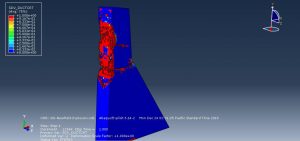
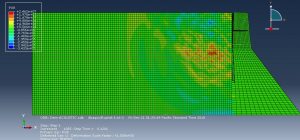
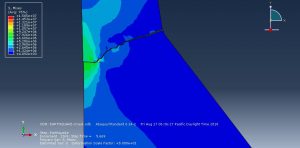
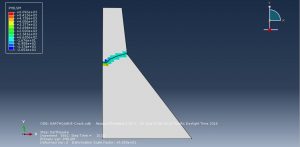
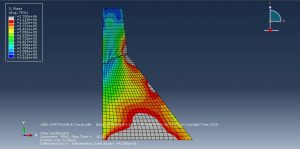
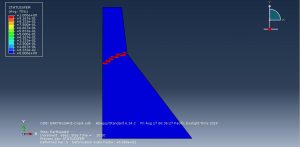
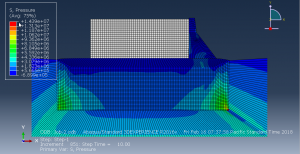
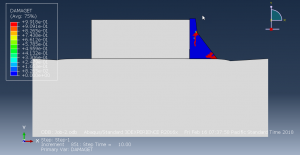
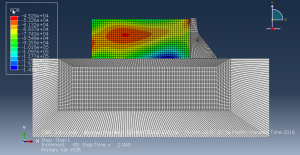
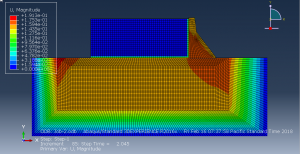
Key Aspects of Dam Simulation in Abaqus
Geometric Modeling
Dams can be modeled in Abaqus using 2D or 3D geometries, depending on the complexity of the analysis
The geometry can be created directly in Abaqus/CAE or imported from CAD software
Material Properties
Dams are typically made of materials like concrete, rock, or soil. Abaqus allows you to define material properties such as elasticity, plasticity, creep, and damage
For soil and rock, advanced constitutive models like the Mohr-Coulomb, Drucker-Prager, or Cam-Clay models can be used
Loads and Boundary Conditions
Hydrostatic Pressure: Simulates the water pressure acting on the dam
Seismic Loads: Simulates earthquake-induced vibrations using dynamic analysis
Thermal Loads: Accounts for temperature variations that may cause expansion or contraction
Gravity Loads: Represents the self-weight of the dam structure
Explosion Loads: Simulates explosion and underwater explosion using CEL or Acoustic method as the dynamic model
Fluid-Structure Interaction (FSI)
Abaqus can simulate the interaction between the dam and the reservoir water using coupled Eulerian-Lagrangian (CEL) or acoustic-structural analysis techniques
This is critical for understanding the effects of water pressure and wave forces on the dam
Failure and Damage Analysis
Abaqus can predict failure modes like cracking, crushing, or sliding using damage mechanics or fracture mechanics models
This is crucial for assessing the safety and longevity of the dam

Applications of Dam Simulation in Abaqus
Structural Integrity Assessment: Ensuring the dam can withstand design loads without failure
Seismic Performance Evaluation: Analyzing the dam’s response to earthquake forces
Hydraulic Analysis: Studying the effects of water flow and pressure on the dam
Thermal Stress Analysis: Evaluating the impact of temperature changes on the dam structure
Optimization: Improving the design of the dam for better performance and cost-effectiveness
Challenges in Dam Simulation
Complex Geometry: Dams often have irregular shapes, which can make meshing and analysis challenging
Nonlinear Material Behavior: Concrete and soil exhibit nonlinear behavior under stress, requiring advanced material models
Fluid-Structure Interaction: Accurately modeling the interaction between water and the dam structure can be computationally intensive
The scale of the Problem: Dams are large structures, and simulating them with high fidelity can require significant computational resources
Dam simulation and analysis in Abaqus is a critical tool for engineers and researchers to ensure the safety, stability, and performance of dams under various conditions. By leveraging Abaqus’s advanced modeling and analysis capabilities, users can gain valuable insights into the structural behavior of dams and make informed design decisions
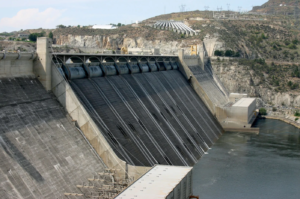
In this package, you will learn all types of Dam Modeling and Simulation, including all materials and methods
The package contains Six separate tutorials, each tutorial includes cae, inp, code, paper, reference of the materials, and a step-by-step English video. You can check the titles of the tutorials below
A) Damage prediction of concrete gravity dams subjected to two underwater explosion shock loading
B) Simulation of underwater explosion near a concrete dam by using the CEL method in Abaqus
C) Numerical simulation of failure modes of concrete gravity dams subjected to underwater explosion in Abaqus
D) Simulation crack growth in the Koyna dam under seismic load in Abaqus
E) Simulation earthquake over gravity dam in interaction with water and soil by using the infinite element method
F) simulation Eulerian explosion near the concrete dam
The price of this package is Fifty-Seven Euros, you can use a PayPal account, a Visa, or a Mastercard for the payment
If you are interested in the fire package, send us an email here: abaqusfem.com@gmail.com
 Abaqus tutorials Abaqus tutorials
Abaqus tutorials Abaqus tutorials
